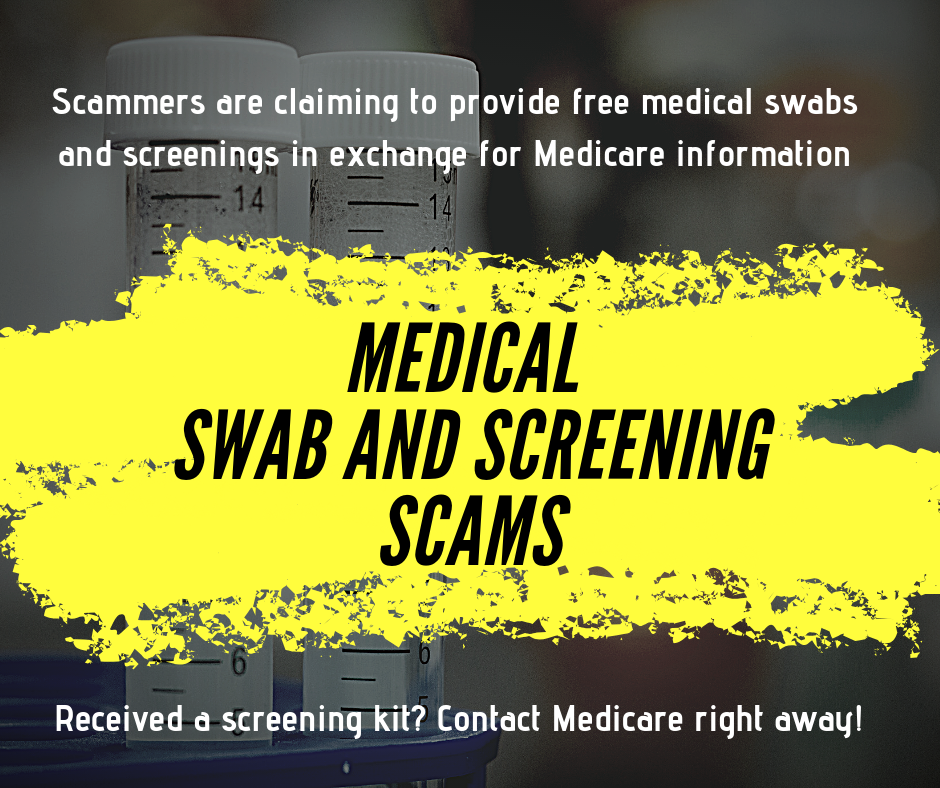Consumers have reported receiving calls or online solicitations for free medical cancer screening kits in exchange for Medicare information. While cheek swabs are used in common screenings for illnesses and genetics, unprompted and unsolicited calls or online advertisements for free cancer screening kits are a scam.
Phone. Often this scam begins with a phone call, letting consumers know that their doctor has referred them for a free cancer screening kit. The caller then asks for Medicare information, claiming their insurance will cover the kit. The cancer screening kit does normally arrive at the home of the consumer but it typically does not go to a cancer screening facility, or if it does, consumers are required to pay out of pocket.
Internet. This scam can also originate as an online advertisement. The advertisement will state consumers can receive a free cancer screening kit. Clicking on the advertisement will bring consumers to a separate page to provide contact information as well as insurance and Medicare accounts.

Signs to spot a cancer screening scam:
- An unsolicited phone call or internet advertisement stating qualifications have been met for a free cancer screening kit.
- The products claim Medicare or other insurance providers will cover the cost.
- Often described as free in exchange for Medicare information
- The seller claims a doctor has approved a referral for the cancer screening kit.
- Personal identifiable information (Medicare information, Social Security Number, Date of Birth) is requested.
Never provide personal information over the phone or online if you’re unsure where this information is going or you were contacted without request. If you receive a cancer screening device without requesting one or provided your Medicare information to an unknown scammer, call Medicare right away to report fraud at 1-800-MEDICARE.
If you or anyone you know has engaged with a scam, please contact the Consumer Assistance Program at 800-649-2424.
Contributing Editor: Alexandra Esposito
Content Editor: Crystal Baldwin
Sources: AARP
Medicare
OIG Department of Health and Human Services
